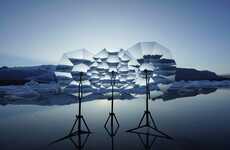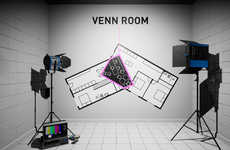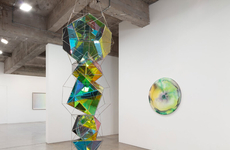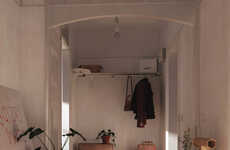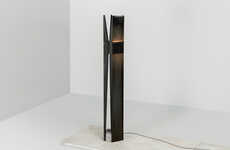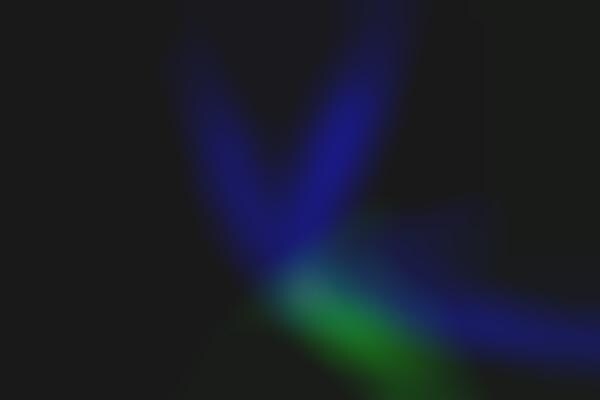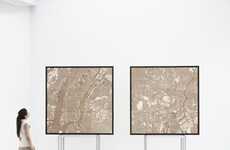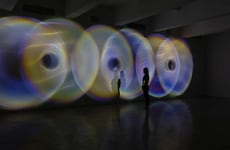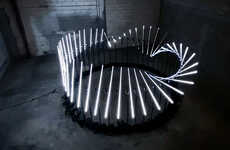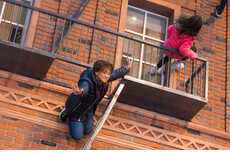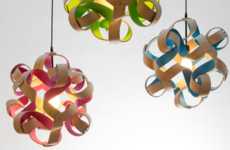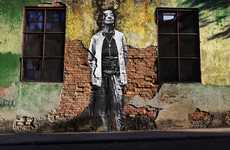
Vector Space by Jayson Haebich Creates Illusory Architectural Structures
Meghan Young — June 5, 2013 — Tech
References: jaysonh & fastcodesign
Gazing at the 'rooms' used for the Vector Space installation, a person will see columns, walls and more as though they were standard spaces. In reality, the laser lights create the illusion of such structures through the strategic placement of smoke and shadow.
Created by new media artist Jayson Haebich, Vector Space is quite impressive. Playing with perspective, it uniquely treats lasers in an architectural manner. Haebich reveals, "I started using lasers a few years back for music events and quickly realized the potential to use them in a more artistic way." Filled with light sculptures, Vector Space is certainly artistic.
Using the same template, Vector Space is comprised of a one-point perspective that is divided in half and a vanishing point that occupies the center of the image.
Created by new media artist Jayson Haebich, Vector Space is quite impressive. Playing with perspective, it uniquely treats lasers in an architectural manner. Haebich reveals, "I started using lasers a few years back for music events and quickly realized the potential to use them in a more artistic way." Filled with light sculptures, Vector Space is certainly artistic.
Using the same template, Vector Space is comprised of a one-point perspective that is divided in half and a vanishing point that occupies the center of the image.
Trend Themes
1. Illusory Architectural Structures - Disruptive innovation opportunities can be found in creating immersive virtual reality experiences that replicate architectural spaces using advanced projection technology.
2. Artistic Use of Lasers - There is potential for disruptive innovation by exploring new applications of lasers in creative installations and immersive experiences beyond traditional lighting.
3. Perspective Manipulation - Disruptive innovation opportunities lie in developing technologies that allow for the manipulation of perspective to create unique visual experiences in various industries such as entertainment and advertising.
Industry Implications
1. Virtual Reality - The virtual reality industry can benefit from incorporating techniques used in illusory architectural structures to enhance user experiences and create realistic virtual environments.
2. Lighting and Visual Arts - In the field of lighting and visual arts, there is an opportunity for disruptive innovation by exploring the intersection of laser technology and artistic expression to create unique installations and experiences.
3. Entertainment and Advertising - Industries such as entertainment and advertising can leverage perspective manipulation techniques to create captivating visual content and immersive marketing campaigns.
2.1
Score
Popularity
Activity
Freshness

